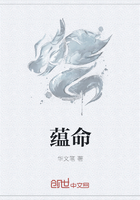Here a curious point arises. We have all studied the ingenious lady who calls herself Ouida. Now, is Ouida, or rather was Ouida in her early state sublime, the last of the old fashionable novelists, or did Thackeray unconsciously prophesy of her when he wrote his burlesque Lords and Liveries? Think of the young earl of Bagnigge, "who was never heard to admire anything except a coulis de dindonneau e la St. Menehould, . . . or the bouquet of a flask of Medoc, of Carbonnell's best quality, or a goutte of Marasquin, from the cellars of Briggs and Hobson." We have met such young patricians in Under Two Flags and Idalia. But then there is a difference: Ouida never tells us that her hero was "blest with a mother of excellent principles, who had imbued his young mind with that morality which is so superior to all the vain pomps of the world." But a hero of Ouida's might easily have had a father who "was struck down by the side of the gallant Collingwood in the Bay of Fundy." The heroes themselves may have "looked at the Pyramids without awe, at the Alps without reverence." They do say "Corpo di Bacco," and the Duca de Montepulciano does reply, "E' bellissima certamente." And their creator might conceivably remark "Non cuivis contigit." But Lady Fanny Flummery's ladies could not dress as Ouida's ladies do: they could not quote Petronius Arbiter; they had never heard of Suetonius. No age reproduces itself. There is much of our old fashionable authoress in Ouida's earlier tales; there is plenty of the Peerage, plenty of queer French in old novels and Latin yet more queer; but where is the elan which takes archaeology with a rush, which sticks at no adventure, however nobly incredible?
where is the pathos, the simplicity, the purple splendour of Ouida's manner, or manners? No, the spirit of the world, mirroring itself in the minds of individuals, simpered, and that simper was Lady Fanny Flummery. But it did many things more portentous than simpering, when it reflected itself in Ouida.
Is it that we do no longer gape on the aristocracy admiringly, and write of them curiously, as if they were creatures in a Paradise?
Is it that Thackeray has converted us? In part, surely, we are just as snobbish as ever, though the gods of our adoration totter to their fall, and "a hideous hum" from the mob outside thrills through the temples. In fiction, on the other hand, the world of fashion is "played out." Nobody cares to read or write about the dear duchess.
If a peer comes into a novel he comes in, not as a coroneted curiosity, but as a man, just as if he were a dentist, or a stockbroker. His rank is an accident; it used to be the essence of his luminous apparition. I scarce remember a lord in all the many works of Mr. Besant, nor do they people the romances of Mr. Black.
Mr. Kipling does not deal in them, nor Mr. George Meredith much; Mr.
Haggard hardly gets beyond a baronet, and HE wears chain mail in Central Africa, and tools with an axe. Mrs. Oliphant has a Scotch peer, but he is less interesting and prominent than his family ghost. No, we have only Ouida left, and Mr. Norris--who writes about people of fashion, indeed, but who has nothing in him of the old fashionable novelist.
Is it to a Republic, to France, that we must look for our fashionable novels--to France and to America. Every third person in M. Guy de Maupassant's tales has a "de," and is a Marquis or a Vicomte. As for M. Paul Bourget, one really can be happy with him in the fearless old fashion. With him we meet Lord Henry Bohun, and M. De Casal (a Vicomte), and all the Marquises and Marquises; and all the pale blue boudoirs, and sentimental Duchesses, whose hearts are only too good, and who get into the most complicated amorous scrapes. That young Republican, M. Bourget, sincerely loves a blason, a pedigree, diamonds, lace, silver dressing cases, silver baths, essences, pomatums, le grand luxe. So does Gyp: apart from her wit, Gyp is delightful to read, introducing us to the very best of bad company. Even M. Fortune du Boisgobey likes a Vicomte, and is partial to the noblesse, while M. Georges Ohnet is accused of entering the golden world of rank, like a man without a wedding garment, and of being lost and at sea among his aristocrats. They order these things better in France: they still appeal to the fine old natural taste for rank and luxury, splendour and refinement.
What is Gyp but a Lady Fanny Flummery reussie,--Lady Fanny with the trifling additional qualities of wit and daring? Observe her noble scorn of M. George Ohnet: it is a fashionable arrogance.















